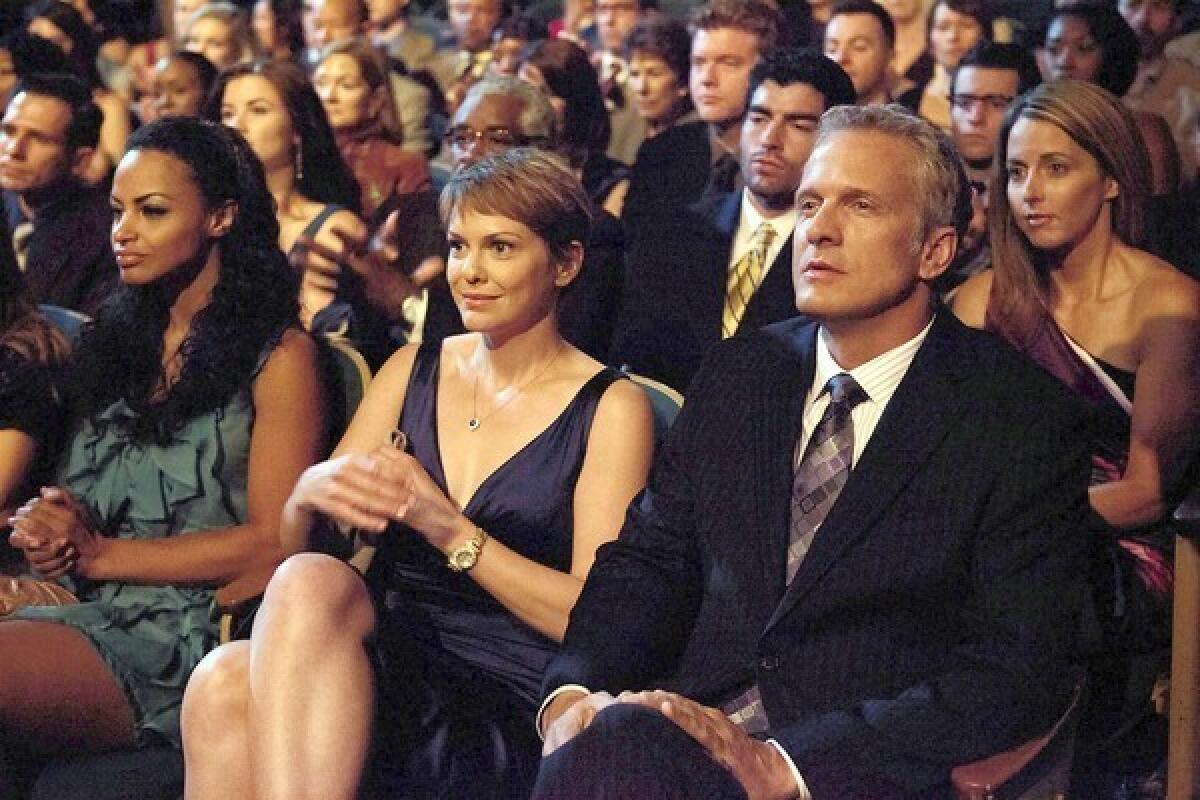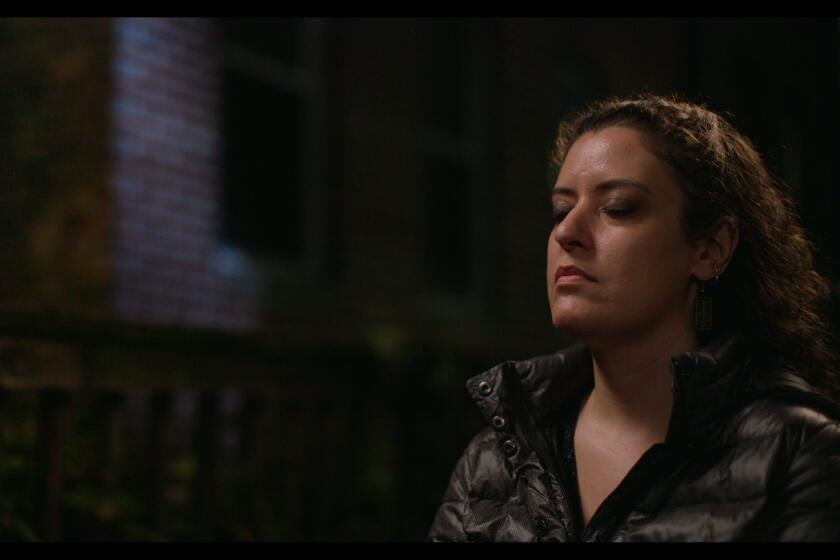Review: ‘Atlas Shrugged Part II: The Strike’ is blandly mediocre

The downsizing of Ayn Rand’s thousand-page big-ideas novel, begun with last year’s sputtering salvo in a planned trilogy, continues with “Atlas Shrugged Part II: The Strike.” A new director is at the helm, and the producers have completely recast the doctrinaire dystopia.
If the aim of those changes was to breathe new life into the adaptation, the mission has failed — a detail that’s not likely to deter members of the Rand choir who welcome the multiplex preaching.
And although many things are in short supply in this manifesto-as-movie (the list begins with momentum and nonawkward acting), preaching is not one of them.
With a surfeit of exposition and a decided lack of dramatic coherence, “Part II” picks up the threads of Rand’s 1957 vision. It’s an unspecified near future where gas prices have topped $40 a gallon and Occupy-type demonstrations target corporate headquarters. Titans of industry are staging a kind of strike: disappearing rather than submit to the “looters” — a.k.a. government regulators — who are encroaching on their freedom, profits and capitalist joie de vivre.
Two supposed dynamos engaged in the good fight are railroad executive Dagny Taggart (Samantha Mathis) and steel magnate Hank Rearden (Jason Beghe). They’re kindred spirits and lovers, notwithstanding the obstructionist threats of his estranged wife (Kim Rhodes), who apparently was beamed in from a third-rate soap opera.
In a sci-fi angle that at least would qualify the movie for “Mystery Science Theater 3000” treatment, Dagny has found an abandoned prototype for an engine that could solve the world’s energy problems and begins her search for its inventor. Taking a far less hopeful approach is Francisco d’Anconia (Esai Morales), her lifelong friend and fellow heir to fortune. Not only does he destroy his company’s copper mines but he’s also given to turning wedding toasts into philosophical lectures that bum everyone’s journey — wedding guests and moviegoers alike.
For a story that aims to celebrate extraordinary individuals and embraces the concept of elitism, the bland mediocrity of most of the characters — Dagny especially — is a definite problem. The low-rent production values don’t help. That tech hasn’t advanced beyond 2012 computer models is one thing, but the ultra-wealthy’s faux-luxe surroundings are more than a distraction.
Budgetary constraints aside, director John Putch struggles to find balance or generate a single spark from the clunky mix of romance, political diatribe and thriller. (The screenplay is credited to Duke Sandefur, Brian Patrick O’Toole and Duncan Scott.) He comes closest in the judicial hearings where Rearden, predictably, takes a defiant stand against emergency measures that tighten the screws on private enterprise.
But what’s meant to be heroic too often comes across as constipated self-righteousness. And what might have had a timely resonance — the independent film’s release is pegged to the presidential elections — remains too much of a dramatic nonstarter to feed any real conversation, whether about the patron saint of the “tea party” or economic frustrations in general.
It has, however, inspired the usually silent Teller (of Penn and Teller) to take a speaking cameo. He’s there and gone in an instant. It’s no sleight of hand; he’s just more fortunate than the rest of the cast, who must lumber through this plodding story about the “motor of the world” as it groans toward the third and final episode.
PHOTOS AND MORE:
PHOTOS: Hollywood back lot moments
Latest movie reviews
PHOTOS: NC-17 movies: Why they got the rating
More to Read
Only good movies
Get the Indie Focus newsletter, Mark Olsen's weekly guide to the world of cinema.
You may occasionally receive promotional content from the Los Angeles Times.









